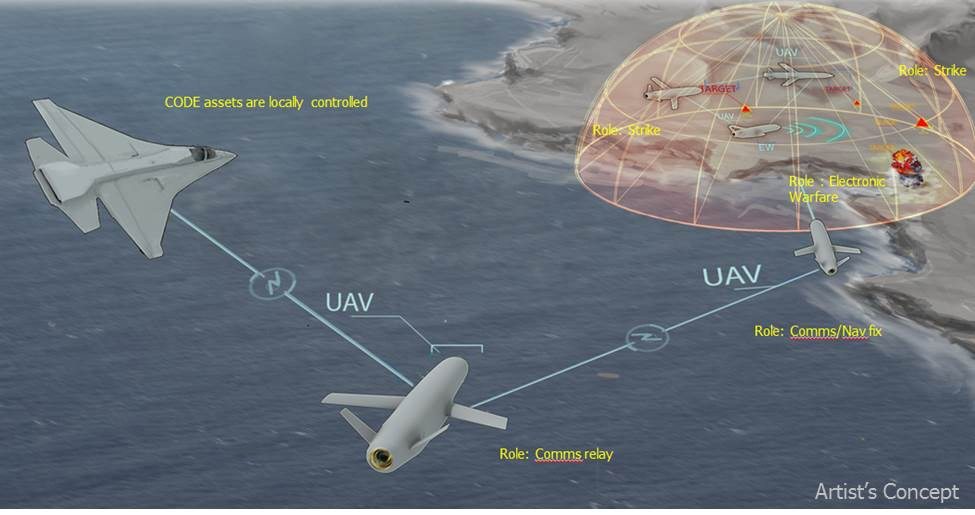The U.S. military’s investments in unmanned aircraft systems (UAS) have proven invaluable for missions from intelligence, surveillance and reconnaissance (ISR) to tactical strike. Most of the current systems, however, require constant control by a dedicated pilot and sensor operator as well as a large number of analysts, all via telemetry.
These requirements severely limit the scalability and cost-effectiveness of UAS operations and pose operational challenges in dynamic, long-distance engagements with highly mobile targets in contested electromagnetic environments.
DARPA’s Collaborative Operations in Denied Environment (CODE) program aims to overcome these challenges by developing algorithms and software that would extend the mission capabilities of existing unmanned aircraft well beyond the current state-of-the-art, with the goal of improving U.S. forces’ ability to conduct operations in denied or contested airspace.
CODE researchers seek to create a modular software architecture that is resilient to bandwidth limitations and communications disruptions, yet compatible with existing standards and capable of affordable retrofit into existing platforms.
DARPA has released a Special Notice (http://go.usa.gov/JXFd) inviting interested parties to identify their interest in participation in select Phase 1 CODE meetings. DARPA is particularly interested in participants with capabilities, methodologies, and approaches that are related to CODE research and focused on revolutionary approaches to unmanned aircraft systems, autonomy and collaborative operations.
Responses to the Special Notice will be used to select the participants and should not contain intellectual, confidential, proprietary or other privileged information.
Two meetings are currently planned: an Open Architecture Meeting and a Technology Interchange Meeting. The Open Architecture Meeting will review the requirements and approaches for making the CODE open architecture compatible with communication-constrained, distributed, highly autonomous collaborative systems.
During the Technology Interchange Meeting, invited participants will present technologies for potential incorporation into the demonstration planned for Phases 2 and 3 of the program and ensure that CODE leverages the best available technologies from all possible sources.










